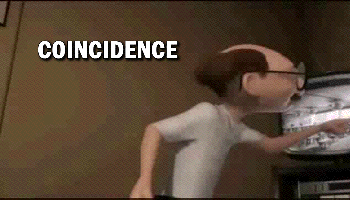So the time has come. After one season of mentioning it and making allusions that didn’t suggest anything good, Poldark dived head-first in representing the French Revolution. For a French person, an English representation of our Day of Glory ranks second, just after the baker forgetting to put salt in his daily load of baguettes, in stress factor. Indeed, the Anglo-Saxon world is less than kind and fair toward this particular event of French History. So I was ready to cry bloody tears over the massacre that I sure will happen in a show I like.
Well…in the end, I didn’t cry bloody tears, but it doesn’t mean it was good either!
Poldark my love
When I started Poldark I didn’t expect a lot of the show. Something to kill time that would not make me too angry, and probably not a show that I would follow more eagerly than Outlander. It caught me by surprise in the best way possible; it was better than expected. It’s dramatic but also funny. The characters are great, and the actors playing them do a fantastic job (especially Eleanor Tomlinson as Demelza). The costumes looks ‘real’ and are, most of the time fitting and flattering. No one tries to make the audience suffer for the sake of being dramatically satisfying. Maybe it is not the most ground breaking show but there is no doubt that Poldark is quality entertainment.
In addition to that, as a period drama Poldark manages the illusion of sending you to another time. The aesthetic, of course, plays a huge role in this but it’s not the only thing. The way the characters are thinking and acting is what does the trick for me. While still being relatable, it is immediately clear that they don’t see the world as we do. And this is free of judgement for the characters; they are a product of their time and should be judged as such, or for us (no “good old days” mentality to be found here).
Ross, Dwight, Demelza, and Verity are obviously the most like the audience, but it doesn’t mean that they don’t have view that are alien from ours. Ross and Dwight sure as hell don’t consider women as the equal of men (see the Verity and Karen’s incidents), though are far from raging misogynists. Verity’s acceptance of her ‘banishment’ from her family isn’t very modern. Finally, Demelza has huge problem with her origins in comparison with Ross’s ones, and it makes her feel less than him in her mind.
There are also the characters less like us that we are also supposed to see as good people. I think Caroline is the biggest example, but her uncle, Francis, Francis’s father, Aunt Agatha, and Verity’s husband also come to mind.

We are also drawn into caring for their issues without having them feel outdated or artificial.
So yes I love Poldark, way more than what I expected. Doesn’t mean that everything gets a pass though.
The French Revolution was way more important that the Bastille and the Guillotine
Did you know? French people are generally proud of the French Revolution. There is a reason why our national day is on the 14th of July (by the way don’t call it ‘Bastilles’ day’; this day commemorates the taking of Bastille, yes, but also the Fête de la Fédération, which happened one year later and represent the nation’s unity). In term of pop culture we are still very enthusiastic about it—after all a musical on the Revolution was produced in 2012. It doesn’t mean that we consider the French Revolution an unproblematic era. We know we fucked up big time between 1793 and 1794, but all in all we have a pretty positive view of the events.
But obviously I need to give three little reminders before explaining why Poldark lost a golden opportunity with the French Revolution. And how it is a case of lazy writing.
What was the French Revolution?
What we now called the French Revolution is a term used to talk about the period starting in 1789 (let’s say the 20th of June when the Tiers État, aka the common people, formed the Assemblée Nationale and turned the absolute monarchy in constitutional one). When does it end? Here where the question becomes tricky. On most days I will say in 1815, with the ultimate defeat of Napoleon and the “new” design of Europe decided in the Congress of Vienna. Some days I will agree with 1804, because the idea of an hereditary empire seems antithetic with the Revolution (even if it’s wrong since at its beginning the Revolution brought a constitutional monarchy). Some others will say 1799… Only one thing is for sure: the Revolution and what it was trying to achieve was definitively buried by 1815 in Vienna.
It included 5 types of government, a constitutional monarchy, a republic, a ‘Directoire’, a ‘Consulat’, and an empire. Most importantly it’s widely agreed that the French Revolution is what opened the long 19th century. It is an event which shook Europe to its very core, and is responsible for a lot of things that happened after or still are today.
Why did the French Revolution happen?
The French Revolution happened because France was a poorly managed absolute monarchy and because the Enlightenment ha made its way in a lot of consciousnesses.
To give you even more context about the absolute thing, no king in England has ever been an “absolute” monarch—not even Henry the VIII as head of Church. Because in England there were laws such as the Magna Carta or the Habeas Corpus. Being an absolute monarch, however, meant that you could rule alone and, for example, people are sent to prison because you say so. There are only three French monarchs who were absolute kings: Louis XIV, Louis XV, and Louis XVI. Even if absolutism helped making France a power country once again, it is a mode of government which is not morally or ethically defensible.
The goal of the French Revolution was to free mankind of tyranny ,and give the power to the people (for more information, I will kindly refer you toward the Declaration of the Rights of Man and of the Citizen). That’s why even during the Empire, Napoleon kept using plebiscites (even if it was just for the form). And to attain such a goal, the revolutionnaires thought about transforming the world.
The Terror
Ah the Terror; you English-speaking people have a weird boner for this, don’t you?

The Terror is a period of the Revolution when people were arbitrary put to death and when any opposition to the Montagnards was mercilessly crushed. 100,000 persons are believed to have been killed by the Republic during this period.
It is widely believed that the Terror started as a reaction to France’s numerous defeats against the anti-revolutionary coalition (aka all of Europe), and against the royalists in Vendée. Indeed, when you lead an ideological war, it is not even imaginable to lose it. Because losing it would mean that the others are better than you and therefore that you are wrong. So if you aren’t doing well, it can only mean that there are internal enemies—traitors—sabotaging your work. And so the witch-hunt begins. It is no coincidence that the Terror ended (violently) when France started winning on the battlefield.
Oh and also the Terror took place between 1793 (some believe 1792) and 1794. So the Terror only made up 3% to 7% of the French Revolution. But I think it is one of the most adapted periods of the French revolution in the English-speaking world.
Poldark and the Revolution
What happened in Poldark?
So at the end of season 2, because of a broken heart, the good doctor Dwight Enis enrolls in the Navy, which is currently fighting against France. Even if the broken heart ended-up being a misunderstanding, Dwight is still bound to the army and leaves when called. Unfortunately his now-wife, Caroline, discovers that his ship has been destroyed and that Dwight is missing in the second episode of season 3. So in the following episode, Ross decides to depart to France in order to discover what happen to his friend.

He arrives in Roscoff, a little town in Brittany close to a prison where English officers are kept. From there he has to manage between a French informer only interested in money, a spy working for the Republic, the Republican administration etc. He also witnesses ‘police’ brutality and a public execution with the mandatory guillotine™ in front of a fanatical mob… In the end, by buying his way out of prison and disobeying revolutionary laws, Ross manages to discover that Dwight is indeed alive and kept in said prison. The episode closes on Dwight telling a fellow new inmate “we are all in hell now”.
Why it doesn’t work as a representation of the French Revolution?
Of course Ross’s trip had to take place during the Terror. After all, it is not as if England and France hadn’t been at war during the entire French Revolution.

Of course the Republic’s spy is a sexy™ woman making sexual advance to the always faithful (cough cough) Ross. Of course the French informer has no sense of law or honor. Of course Ross and his men are the last sane people in this ordinarily little nice town.
I could continue to list the stereotypes on Revolutionary France™ but I want to talk about something specific: the guillotine scene. Since no period drama on the French Revolution can do without a guillotine scene.
Yes the guillotine was invented and made mandatory during the Revolution (question of equality in front of death), but it isn’t exclusive to France or to the Revolution. Actually it was used by every type of government in France for capital execution up to 1977 (last death sentence carried out in France). Except for military tribunal, it was even the only way of killing people in France with the exception of one period: the Terror. Even if it was technically mandatory, some cities found quicker way of getting rid of the traitors. Nantes comes to mind; they created an ‘ingenious’ system with boats to drown dozens of convicts at the same time. So if you want to represent the Terror’s brutality and you only think about guillotine, well hum… Let’s say that the revolutionnaires had a better imagination than you.
Also it’s quite lacking in term of revolutionary spirit. We have the guillotine, the roundel, and the flag. What about people calling each other citizens? Or the use of the revolutionary calendar? Maybe the metric system? Why don’t we see a clear difference in the fashion style? Why is nobody talking about the worship of the Supreme Being? Marianne? If your point is to show the huge difference, the idea of dystopic world where the very core of a system has been shaken, why won’t you show that? Having people speaking, counting, worshiping in one word, thinking drastically differently than what you expect would be way more efficient.
Expect if you are just doing a stereotypes-collection in order to cheaply entertain your home audience. And that would explain why everyone in 18th century Brittany is speaking French. But in this case, I would ask you to keep to your own history and don’t come play with someone else’s.
How to do a representation of the French Revolution that is not glorifying it, but also doesn’t fall into the “people were guillotined” stereotype, you might ask? Well you might want to talk about the inherent misogyny of the Revolution or how it encouraged the devolvement of nationalism in Europe with the consequences that we know. And it is just at the top of my head. I am sure there is more to develop with just a little research.
Why it doesn’t work in term of theme?
Among the many themes addressed in Poldark, there is the denunciation of systematic inequality. May it be because of class, money, or gender, the show has made clear than having your life decided by someone born “better” than you sucks. Especially when you would do better in their shoes. See Eleanor having good idea for the mine, but being shut down by Francis because she is a woman. Or Dwight not being taken as seriously as the county doctor or being denied Caroline’s hand in marriage because he is not ‘gentleman enough’. The miners dying over Ross and Georges’s feud. Demelza’s entire character!

It is a proof of positive growth when a character understands that they are worth more than what society says. On the contrary, it’s a failure when they slowly accept their lot. So when you take the French Revolution, whose entire goal was to make people equal (the actual consequences are debatable), and do it in a way where it’s instead, “you should make the Revolution with kisses”, you look politically naive and you undermine your own theme. And especially when your show fails to propose systematic solutions.
The one good thing about this all mess
I am back at the guillotine scene, but making it parallel to George’s administering justice was a great idea. It undermines the entire “arg bad French Revolution VS good English countrysides” ambiance of the episode. And the editing was very nicely done. I guess that making the worst of the Revolution equal to day-to-day English justice was a good idea. It made up for the rest. Except that it is the only time this is explored in the episode, and I might be giving them to much credit. After all, I have a bias. Maybe the just wanted to say that George was as bad as the worst of French Revolution.
Conclusion
Poldark swapped a golden opportunity to uplift one of its most important themes for cheap entertainment. Even more if we consider that for anyone remotely knowledgeable in the French Revolution, it actually worked against said theme. Let’s hope it’s one time problem coming from the source material and not systematic of a new writing laziness.
But the characterization of George’s character doesn’t argue well for the future of the show.

